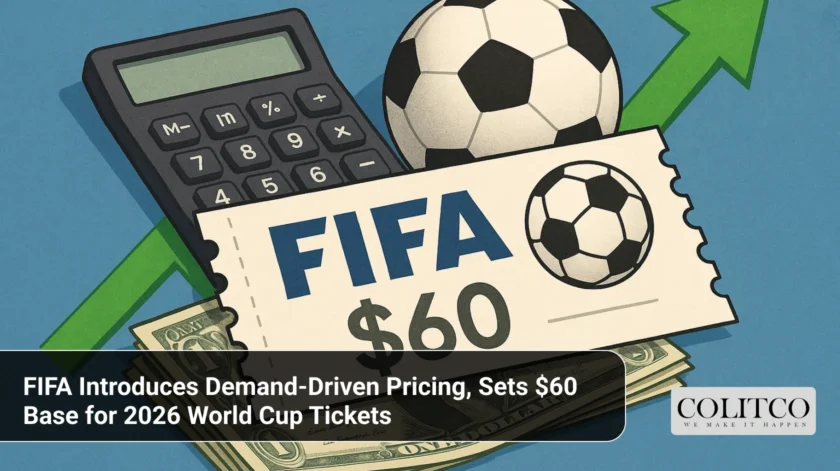Ticket Launch for 2026 World Cup
FIFA announced the official ticket prices for the 2026 World Cup in North America. The body announced that the lowest-level tickets will start at $60 in group-stage games. Another initiative by FIFA was the dynamic pricing system, which would adjust the price of tickets according to demand and supply.
Expansion of the World Cup
The 2026 World Cup will be the largest in the tournament’s history. It is the first version to have 48 teams rather than 32. The United States, Canada and Mexico will be co-hosts of the competition held in 16 cities. Organisers of the tournament have scheduled 104 matches as compared to 64.
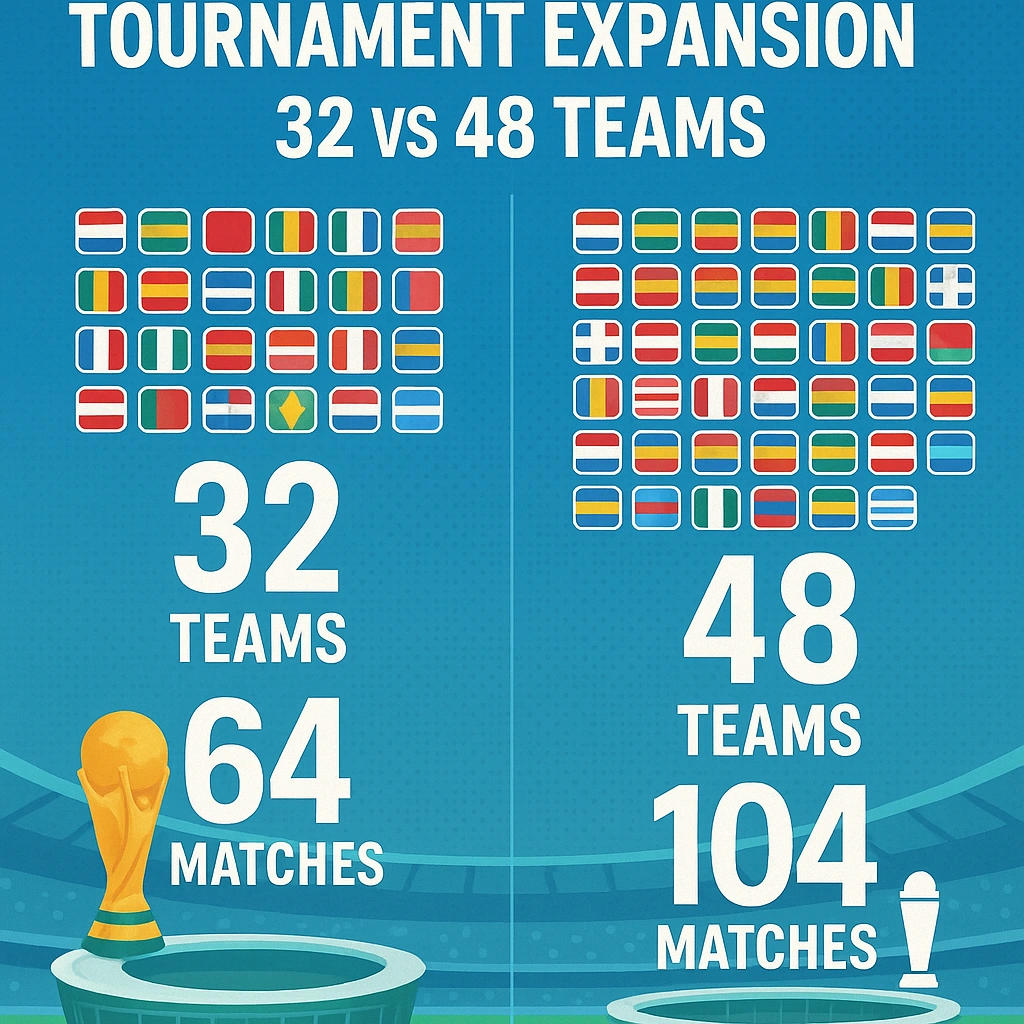
Expansion in the World Cup format
Scale of the Event
The host cities are Los Angeles, New York, Toronto, Vancouver and Mexico City, among others. The games will be held in big arenas, such as NFL stadiums, like MetLife Stadium and AT&T Stadium. FIFA estimates that the total attendance will exceed 5.5 million. This would surpass the 3.6 million attendees that were registered in Brazil in 2014.
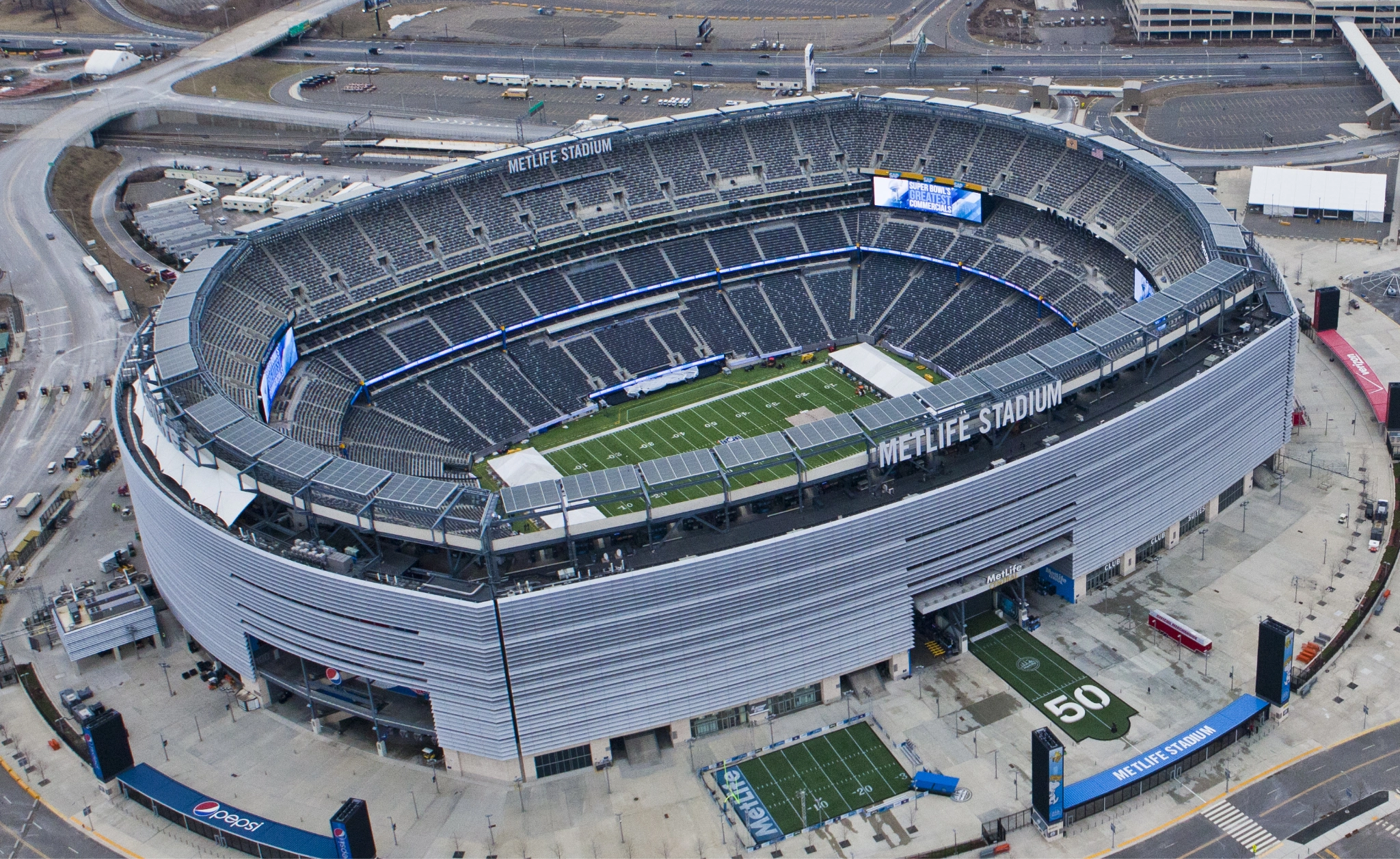
MetLife Stadium will host the 2026 World Cup Final
Ticket Categories
FIFA confirmed multiple ticket categories based on seating and location. Prices for group-stage games begin at $60 but will increase for later stages. Round of 16 matches carry higher entry-level prices, while quarter-final and semi-final prices will rise further under the flexible pricing system. Final tickets will reach the highest bracket with some premium packages exceeding $1,000.
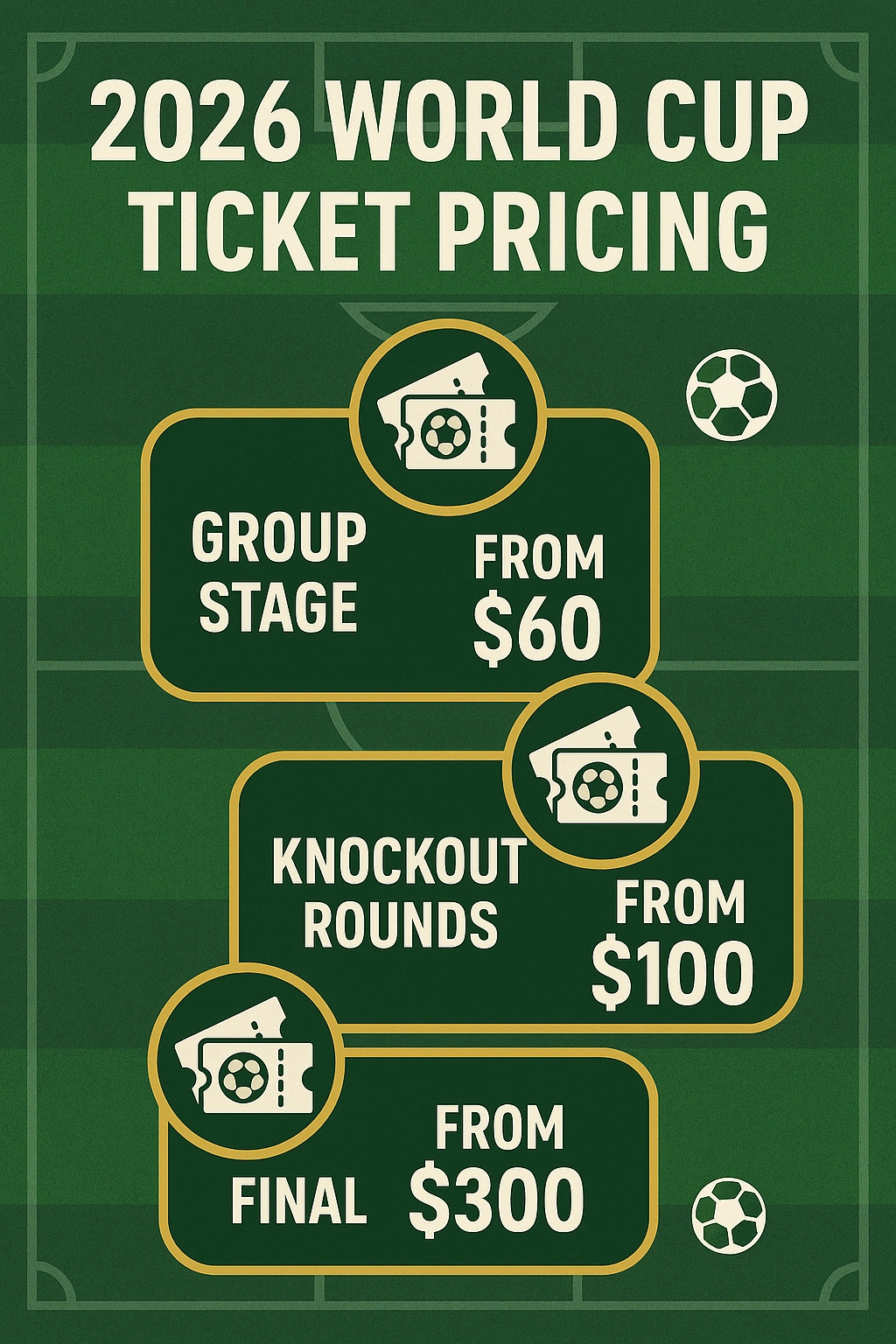
2026 World Cup ticketing structure
Dynamic Pricing System
The regulatory authority launched a price adjustment model that automatically changes the prices of the tickets. Depending on the demand, match importance and the remaining availability, prices will increase or decrease. The model is a reflection of the airline ticketing business in which prices vary with time and demand. FIFA said the system provides greater access and still manages to generate revenue.
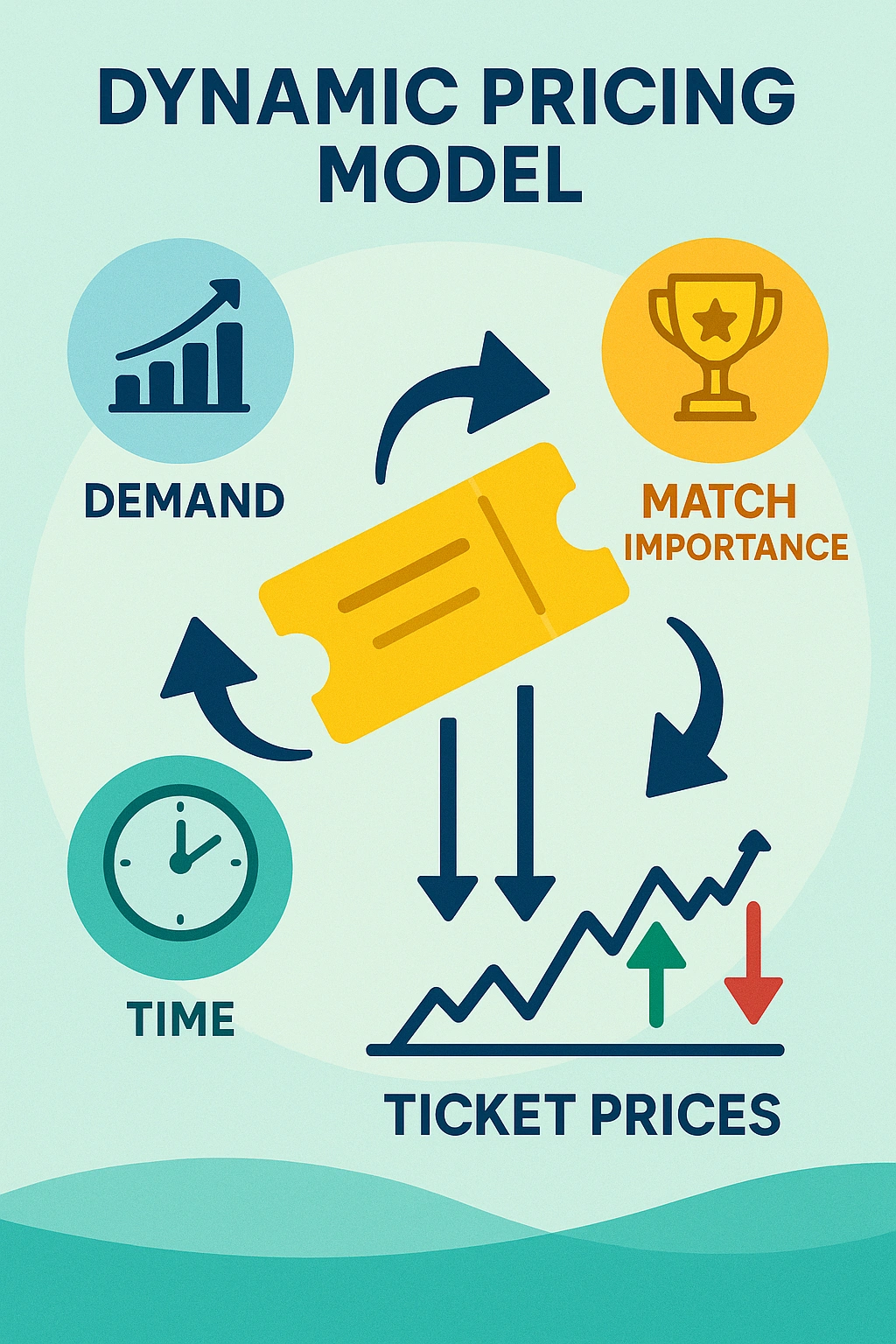
Dynamic Pricing System – Explained
FIFA’s Statement
FIFA released an official statement regarding affordability and accessibility. The announcement confirmed: “Tickets for the FIFA World Cup 2026 will begin at $60, while ensuring that fans across the globe can access the event through a flexible pricing system. The dynamic pricing model allows us to balance affordability with demand, creating opportunities for as many fans as possible to attend matches.”
Historical Ticket Pricing Context
In Qatar, the ticket price at the previous World Cup was between $70 to more than $1,600. The Brazil 2014 tickets were sold at $15 to Brazilian residents and at a higher price to foreigners. In the United States in 1994, the tournament began at a price of $30 as we had record crowds. FIFA has also changed ticketing structures with the inflation and increase in venues.
Accessibility Goals
FIFA emphasised the importance of making the event accessible to diverse fans. The $60 entry-level ticket has been set within reach of a broad range of supporters. Lower-cost seats will be available in large-capacity stadiums throughout the group stage. FIFA aims to attract families and younger fans by offering lower-cost entry points.
Impact on Fans
The announcement received mixed responses among the fans. Groups of supporters greeted the entry level option of $60 but expressed concern with dynamic changes. Others believed that prices would skyrocket in the run-up to high demand games, and many would have been locked out. Other people emphasised how early customers can get a good deal before prices rise.
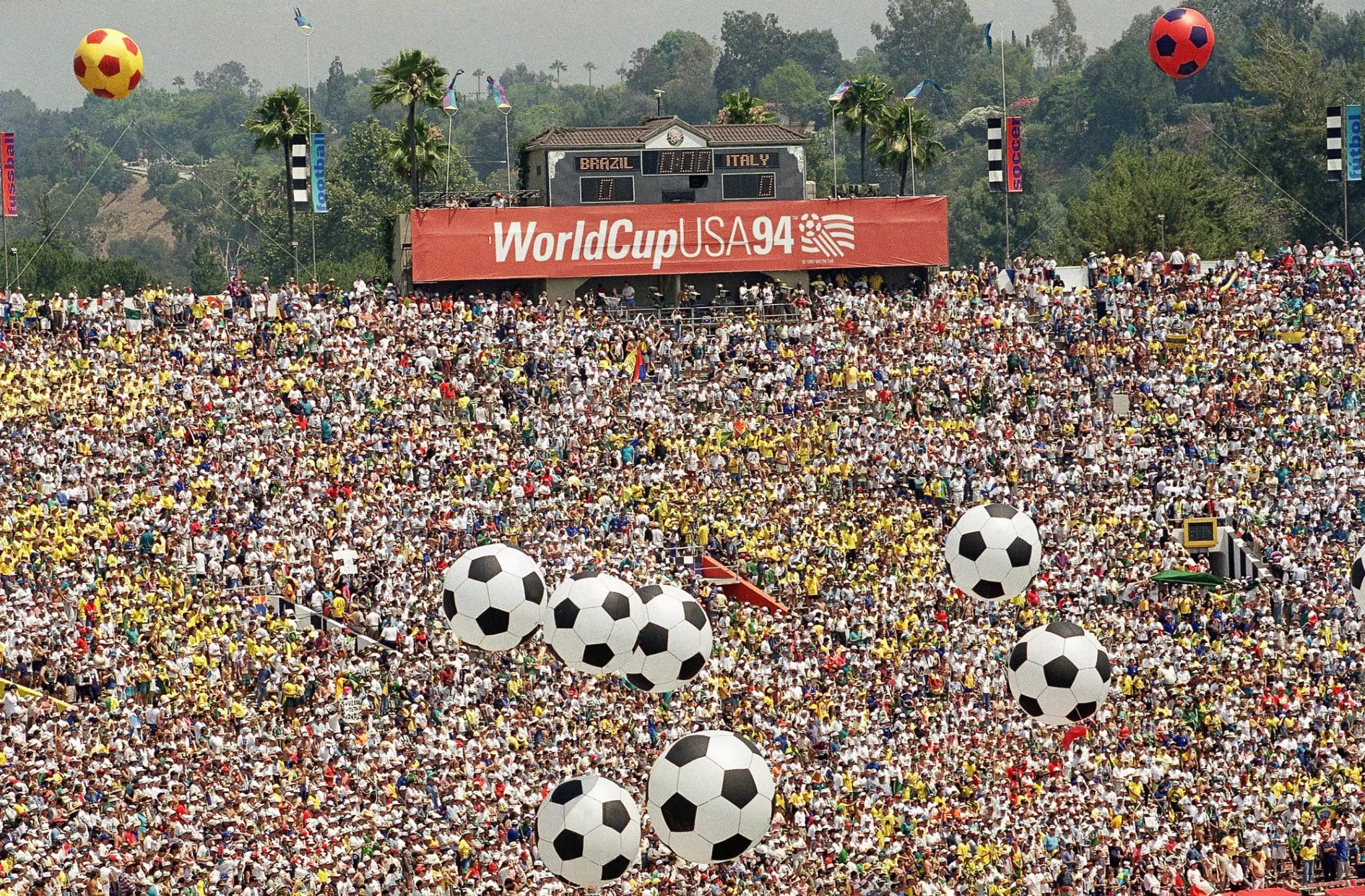
The Rose Bowl packed with fans during a World Cup match between Brazil and Italy on July 17, 1994
Host Cities’ Preparations
Host cities have started to upgrade infrastructure, such as transport and accommodation development. Retrofitting of stadiums in the United States is done to comply with FIFA. Matches will be hosted in Canada in Vancouver and Toronto and in Mexico in Monterrey, Guadalajara and Mexico City. In the process, the local governments are anticipating higher employment and tourist numbers in the event.
Expected Ticket Demand
FIFA projects huge demand for 2026 World Cup tickets. Early fan signups in 200 countries had already passed over 2.5 million prior to the sale of tickets. The last will probably draw more than 90,000 at MetLife Stadium in New Jersey, one of the biggest crowds in World Cup history.
Corporate Hospitality Packages
Beyond standard ticketing, FIFA will offer corporate hospitality packages. Premium seats, lounges, and exclusive experiences will cost significantly more. FIFA Hospitality has targeted global sponsors, multinational companies, and major clients seeking business opportunities during the tournament. These packages will include matchday services, catering, and networking opportunities.
Broadcasting and Media Rights
FIFA’s revenue model relies heavily on media rights, with ticketing serving as one key pillar. Similar to Qatar 2022, broadcasters in over 190 countries have secured rights. More than five billion viewers are expected globally, continuing football’s status as the world’s most-watched event. Ticket revenue projections stand near $2 billion.
Fan Zones and Affordable Viewing Options
In addition to stadium access, FIFA confirmed plans for fan zones across host cities. These areas will broadcast matches on large screens and offer official merchandise and entertainment. Fan zones proved highly popular in Germany in 2006 and France in 1998. FIFA expects record participation given the host nations’ infrastructure and broad fan base.
Airlines and Travel Demand
The dynamic pricing model coincides with increased travel demand. Airlines across North America forecast a spike in bookings around match schedules. Accommodation providers in host cities anticipate large surges in room rates. Travel agencies confirmed international football tourism will surge, particularly from Europe, South America, and Asia.
Economic Forecasts
Independent economists predict the tournament will generate over $15 billion in direct economic impact. The United States will capture the bulk of revenue given its larger number of host cities. Canada and Mexico also expect tourism and employment increases. Economists note hotel occupancy rates could reach record highs in major hubs.
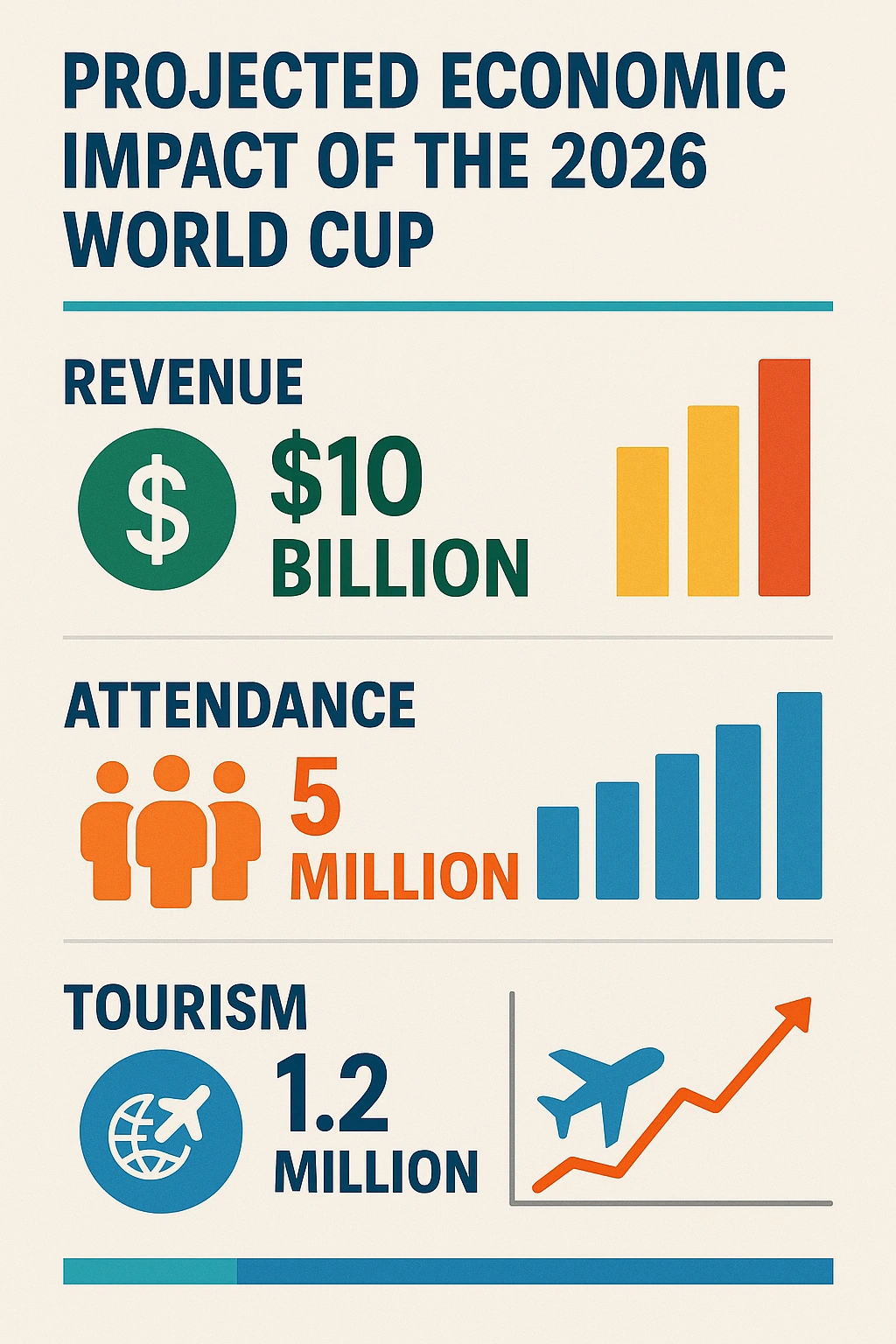
Political Responses
Government officials welcomed FIFA’s decision to set entry-level tickets at $60. Canadian authorities stressed the tournament will expand cultural outreach and sporting participation. Mexico’s Sports Ministry highlighted infrastructure investment linked to stadium upgrades. US officials highlighted foreign investment in tourism and hospitality linked directly to the tournament.
Environmental Concerns
Environmental groups raised concerns regarding the tournament’s carbon footprint. Increased flights, hotel occupancy, and stadium energy use remain key issues. FIFA confirmed sustainability programs are under development. These include carbon offset schemes, renewable energy sourcing, and improved public transport links.
Fan Registration Timeline
FIFA’s ticketing website will open pre-registration in early 2026. Fans will access the online portal to register for lottery phases and direct sales. Lottery allocations will enable random draws for high-demand matches, including knockout stages and the final. Fans who register early have stronger opportunities to secure cheaper tickets.
Comparison with Other Events
The Olympics also adopted dynamic ticketing models. Paris 2024 introduced fluctuating prices for high-demand sessions. American sports leagues including the NBA and NFL already rely heavily on dynamic ticketing. FIFA now mirrors those systems to maximise stadium utilisation and revenue efficiency.
Scalpers and Secondary Market
FIFA warned fans against purchasing from unauthorised sellers. Secondary market practices remain a challenge for global sporting events. FIFA’s official resale platform will allow fans to exchange tickets at authorised prices. The organisation has pledged digital ticketing controls to limit unauthorised price gouging.
Supporter Reactions in Host Nations
In the United States, fan associations highlighted opportunities for affordable access to early matches. Canadian fans expressed optimism regarding home team attendance. Mexican supporters welcomed lower entry categories but raised concern over rising travel and accommodation costs. Overall reaction across host nations remained strongly engaged with pricing details.
Security and Crowd Management
Security agencies in all three host nations have allocated budget increases for crowd management. Venues are preparing coordination centres for police, medical teams, and FIFA security staff. Law enforcement presence will be significant at every venue, given the scale of the tournament. FIFA confirmed stadium access will occur exclusively through digital ticketing.
Outlook for Attendance Records
The 2026 World Cup is projected to set new records in attendance and revenue. The use of NFL-sized stadiums could allow individual matches to surpass 90,000 attendees. FIFA anticipates more than 1.5 million foreign visitors travelling to North America for the tournament. Organisers expect higher female and youth attendance due to accessible pricing categories.
Global Football Impact
The tournament’s expanded size also strengthens FIFA’s goal of global accessibility. Forty-eight teams will provide greater representation for regions such as Africa, Asia, and Oceania. FIFA projects increased development funding for participating nations through expanded revenues generated by ticketing and broadcasting. Smaller football nations will gain wider exposure on the world stage.
Future of Ticketing Strategy
If successful, FIFA may continue the dynamic pricing model beyond 2026. The system allows real-time adjustment for supply and demand at future tournaments. Governing bodies of major sports leagues will monitor its effectiveness at maximising revenue while balancing inclusivity. Ticketing remains one of FIFA’s key financial pillars alongside broadcasting and sponsorship.
Conclusion
The 2026 FIFA World Cup will begin ticket sales from $60 as part of an expansive dynamic ticketing model. FIFA set out to balance affordability, accessibility, and commercial sustainability during the largest tournament in football history. With 48 teams, 104 matches, and record attendance projections, the event is poised to reshape the global profile of the sport.
FAQ: 2026 World Cup Tickets
- When do 2026 World Cup tickets go on sale?
Ticket sales officially begin with a first phase launch in early 2026. Pre-registration will open months beforehand, allowing fans to apply through FIFA’s online portal.
- How does the dynamic pricing model for tickets work?
Dynamic pricing adjusts ticket costs in real time based on demand, match importance, and remaining availability. Prices can increase or decrease to balance affordability and maximise stadium utilisation.
- What is the starting price for group-stage tickets?
Entry-level tickets for group-stage matches start at $60. Prices increase in knockout rounds, quarter-finals, semi-finals, and finals according to demand.
- How can fans register for the ticket lottery or presale?
Fans must register via the official FIFA ticketing website during pre-sale phases. Registrations enter a lottery system for high-demand matches. Early registration improves chances to secure tickets at lower prices.
- Are there any special requirements or payment methods for purchasing tickets?
FIFA requires valid payment methods during purchase, including credit and debit cards. Fans without Visa cards may have limited options; FIFA encourages early registration to explore available payment solutions.
- How many tickets can a single fan purchase, and for how many matches?
Limits vary by ticket phase, but typically fans can purchase tickets for multiple matches including group and knockout stages. Maximum quantities per transaction will be specified on sales pages.
- What are the different ticket categories and price ranges?
Tickets are divided by seating location and match importance. Categories include standard seats, premium seats, and corporate hospitality packages. Price ranges start at $60 for group matches, rising to over $1,000 for premium final tickets.
- What are the options for fans without a Visa card for the presale?
FIFA recommends early registration to access alternative payment methods. Fans without Visa should monitor updates or use authorised intermediaries as provided by FIFA.
- Will ticket prices change as demand changes during the sale period?
Yes, prices can fluctuate with demand based on the dynamic pricing model. Fans are advised to buy early to secure the best prices before potential increases later on.
- How will FIFA prevent scalping and unauthorised resale?
FIFA’s official resale platform facilitates ticket exchanges at face value or above a set minimum. Digital ticketing will limit transfers, and security measures aim to reduce scalping and fraud.
- What cities and stadiums will host the matches?
Matches will be held across 16 cities in the USA, Canada, and Mexico. Key venues include MetLife Stadium (New Jersey), AT&T Stadium (Texas), BC Place (Vancouver), and Estadio Azteca (Mexico City).
- How will fans know which matches they are getting if the teams are not yet drawn?
Tickets are sold by match location and schedule, not team. Fans will know the stadium and match times but not the competing teams until the draw occurs closer to the tournament.
- Are there official resale or transfer platforms for tickets?
Yes, FIFA will operate an authorised ticket resale platform allowing fans to buy and sell tickets securely. This platform aims to protect fans from counterfeit tickets and inflated prices.
- Can fans buy hospitality or premium packages?
FIFA offers corporate and premium hospitality packages including premium seating, catering, and exclusive services. These packages target corporate clients and high-end customers.
- What is the timeline for the different ticket sale phases and lotteries?
The first ticket sale phase begins early 2026 after pre-registration closes. The lottery phase allocates tickets randomly for high-demand matches, followed by direct sales and resale opportunities leading up to the event.

